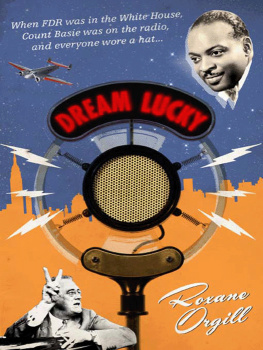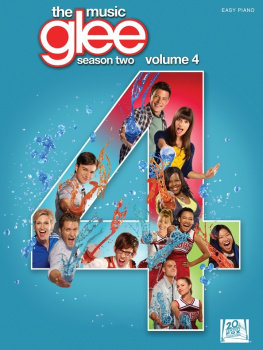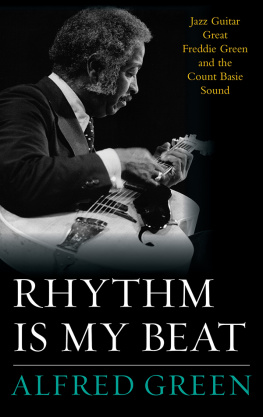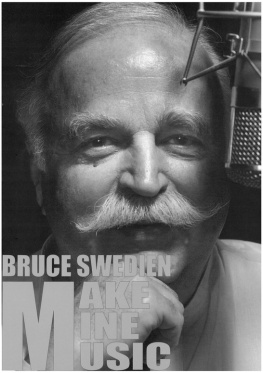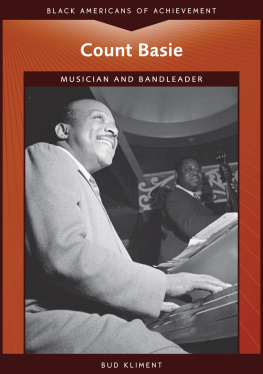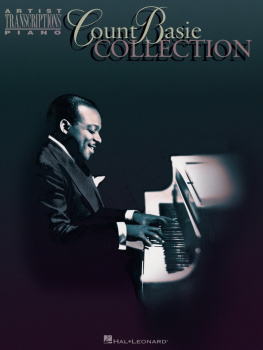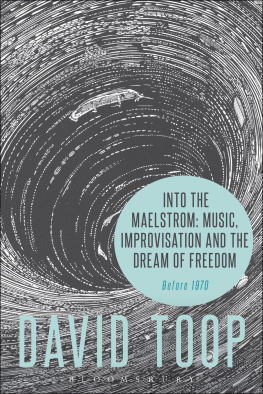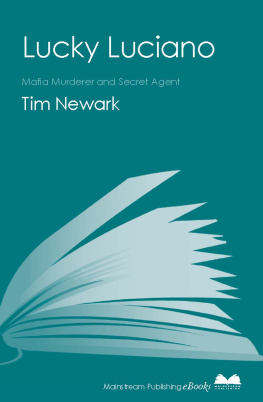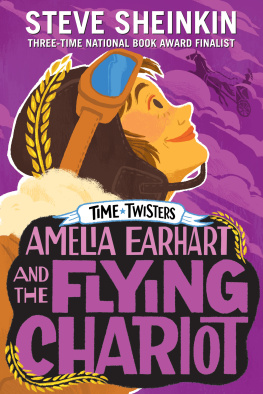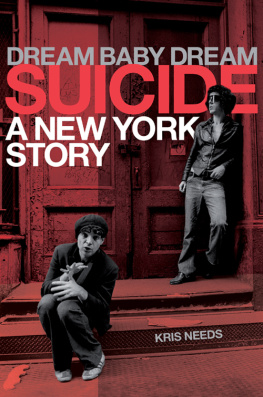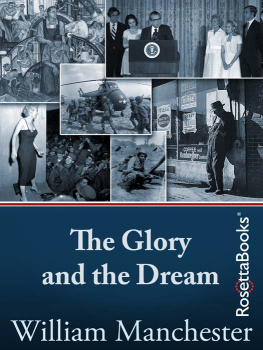The radio was always on, and the dial was tuned to Jack Benny J-E-L-L-Ohhh or the Shadow Who knows what evil lurks in the hearts of men? or Burns and Allen Say good night, Gracie or a Fireside Chat My friends.
Franklin Delano Roosevelt was in the White House, and Eleanor Roosevelt was everywhere. Together they had lifted the country out of the Depression, somewhat. Well, the shantytown was gone from Central Park, at least. The president was occupied with his recovery programs, and Eleanor was worried about civil rights, because Franklin wasnt. She should have been president, some said.
In New York the traffic cops wore white gloves, and Sixth Avenue still had an Elevated. There were telephone exchanges ( dial AUdubon 3-2400 ) and Pullman cars in Grand Central, and everyone wore a hatexcept Amelia Earhart when she announced her flight around the world at its waistline, in the Hotel Barclay (her husband hated her in hats). At the movies seven little men in long beards whistled while they worked, and there were newsreels. (There goes Eleanor in a helmet, descending into a coal mine!)
Oh, and the radio was always on, eighteen hours out of twenty-four, and it was tuned to Edgar Bergen and Charlie McCarthy Two voices between one collar button or Fibber McGee and Molly Taint funny, McGee or Amos n Andy Ise regusted.
More regusted than luckless Andy were the folks in Harlem, where the rent for a filthy flat on Lenox Avenue was higher by 30 percent than for equivalent lodging in other parts of New York.
In Harlem it was the time of numbers games ( play five-sixty-five ), ConEd boycotts ( use candles instead of electricity on Tuesday nights ), and ten-cent meals at Father Divines ( say peace and thank you, Father when an angel fills your plate ).
The Reverend Adam Clayton Powell Jr., was picketing 125th Street, where the stores were owned by whites who refused to hire Negroes: Dont Shop Where You Cant Work! The artist Jacob Lawrence dipped a dime-store brush into dime-store poster paints to tell the story of slaves fighting for their freedom in Haiti, and he didnt stop till he had forty-one paintings. Langston Hughes launched the first, bare-bones production of his Harlem Suitcase Theatre, Dont You Want to Be Free?
Joe Louis was free to be the heavyweight champion of the world, if his right cross held up. The Great Hope of the Negro Race took on the German Max Schmeling twice in the ring at Yankee Stadium, bringing sorrow and joy in equal measure. ( Long live the Brown Bomber. )
And the radio was always on, and after 11 p.m. it was tuned to the sepia bands of Duke Ellington, Cab Calloway, Earl Hines, Jimmie Lunceford, and sometimes, when he could get the gig, Chick Webb, the little hunchback drummer at the Savoy; and to the white bands of Benny Goodman, Red Norvo, Jimmy Dorsey, Tommy Dorsey, and Artie Shaw ( coming to you from the Blue Room of Maria Kramers Hotel Lincoln, just off Times Square ). Goodman was king, of course, but they were all king of swing in their own way. Because swing was all the music anyone needed. Not that pudding Guy Lombardo put out, but real, hopping swingthe kind Count Basie was turning out in Kansas City.
Few listeners were pulling in Basies music on their radio sets in 1936. Basie and His Barons of Rhythm were playing the Reno Club, a hole-in-the-wall in the colored district, which had a radio hookup, but it didnt carry all that far. The joint was so small that the Barons numbered only eight, plus Basie on piano, because thats all that could fit on the stage.
In November Basie decided to risk everythingin this case, a steady fourteen dollars a weekto take a bite out of the Big Apple. Hed add a few men to make the band a bona fide orchestra, then run like hell to catch up to Cab and Chick in New York. Reaching Benny, or any white ork leader, for that matter, wasnt even in his dreamsyet. To think that Basie would crack one of the hep joints on Fifty-second Street, the Famous Door, in the heart of white New Yorkwell, it was unimaginable.
First he had to kick his way out of Kaycee, endure humiliation in Chicago, play about two hundred one-nighters, learn to read music (or not), and jam with Bennys gang in Carnegie Hall and battle Chick Webb at the Savoy in the same night, among other exploits of the man-of-steel sort.
But before all that, before Basie got his Barons on a bus or even packed his case, heand the rest of black Americahad to make it through the first Joe LouisMax Schmeling tilt.
Start with 39,878 paying customers in Yankee Stadium. Add the papered seats, including those for Joe Louiss mother, Lillie Barrow Brooks; his stunning wife, Marva, in a fiery red suede chapeau and gloves and shoes to match; seven hundred newspapermen; and the nonpaying hundreds who peered down from the upper stories and roofs and fire escapes of the surrounding Bronx apartment houses. Add the riders of Interboro Rapid Transit who caught a glimpse of the stadium from their train near the 161st Street stop.
Add the German movie star Anny Ondra, who never attended her husbands fights but listened via shortwave radio in a country house near Potsdam, Germany.
Back in New York, add the people listening to the radios in the Harlem gin mills with signs posted Joe Louis Headquarters, and the people downtown listening via loudspeakers set up on the corner of Eighty-sixth and Lexington and outside Rockefeller Center. Heading west, north, and south, add all the radios in taverns, lunchrooms, general stores, railroad stations, pool halls, automobiles, and living rooms across the countryone in two Americans owned a radio.
In sum, probably sixty million people experienced the tilt between Joe Louis and Max Schmeling on a cloudy, damp evening in June 1936.
On the radio Clem McCarthy, who always sounded like he had rocks in his cheeks, ground out the words faster than a telegraph operator. The only way to hear was to shush everybody in the room and lean in close to the Silvertone. A right hand high on Louiss jaw that made Louis rock his head.
It was a strange beginning, considering that the odds were in Joes favor eight to one.
In the most general way, whites favored thorough, methodical Schmeling simply because he was white. They were willing to overlook the offense of his being so buddy-buddy with Hitler and his associates. He was whitethats what counted when you were going against a black man in the boxing ring. A Negro had no place in the ring.
Remember Jack Johnson? Who could forget the first black man to hold the heavyweight boxing title? Cocky, spoke whatever was on his mind, had no respect for white authority. Johnson had lost his title back in 1915, but memories were long when it came to rich niggers running with white women. Johnson not only ran with them; he married three of them. His biggest mistake, though, was a seemingly small thing: He paid a white ladys bus fare across state lines. That was against the Mann Act, passed to halt transport of females for immoral purposes. Johnson fled the country rather than face the charges.
Louis was a different kind of man, but white folks didnt pay any mind. A Negro had no place in the ring.
Naturally, Negroes backed Louis, but not just because his skin was browncoffee with double cream in the eyes of one female admirer. And not just because he was quick and had a murderous right cross. Negroes stopped him on the corner, at the gas station, in a restaurant to tell him, Way to go, Brown Bomber. Show the white man who we are! Joe was serious and sober, respectful. Unlike Johnson, he had taken a woman from his race for a wife. He fought fair, and he gave a ton of money away. Goodness and ability made Joe the Last Great Hope, the one who was going to deliver Negroes from slavery once and forever. He was the New Day.

